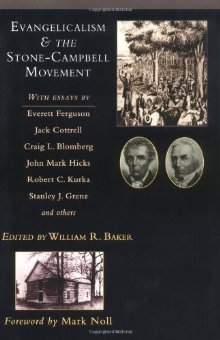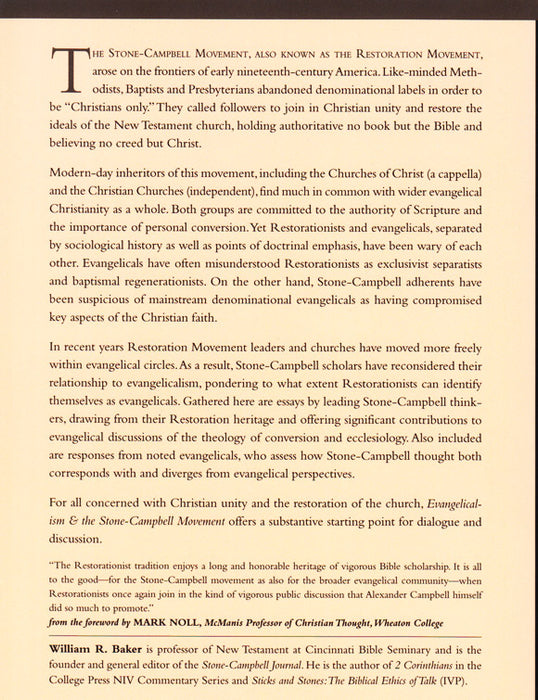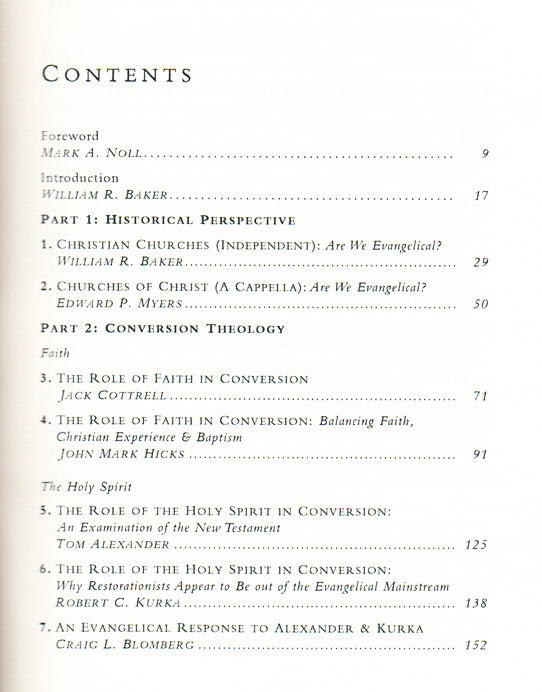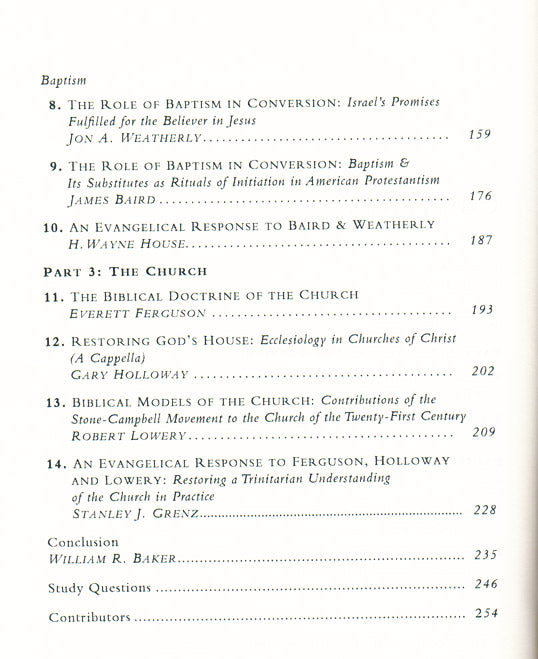
Evangelicalism and the Stone-Campbell Movement - Volume 1
The Stone-Campbell Movement, also known as the Restoration Movement, arose on the frontiers of early nineteenth-century America. Like-minded Methodists, Baptists and Presbyterians abandoned denominational labels in order to be "Christians only." They called followers to join in Christian unity and restore the ideals of the New Testament church, holding authoritative no book but the Bible and believing no creed but Christ.
Modern-day inheritors of this movement, including Churches of Christ (a cappella) and the Christian Churches (independent), find much in common with wider evangelical Christianity as a whole. Both groups are committed to the authority of Scripture and the importance of personal conversion. Yet Restorationists and evangelicals, separated by sociological history as well as points of doctrinal emphasis, have been wary of each other.
Evangelicals have often misunderstood Restorationists as exclusivist separatists and baptismal regenerationists. On the other hand, Stone-Campbell adherents have been suspicious of mainstream denominational evangelicals as having compromised key aspects of the Christian faith.
In recent years Restoration Movement leaders and churches have moved more freely within evangelical circles. As a result, Stone-Campbell scholars have reconsidered their relationship to evangelicalism, pondering to what extent Restorationists can identify themselves as evangelicals.
Gathered here are essays by leading Stone-Campbell thinkers, drawing from their Restoration heritage and offering significant contributions to evangelical discussions of the theology of conversion and ecclesiology. Also, included are responses from noted evangelicals, who assess how Stone-Campbell thought both corresponds with and diverges from evangelical perspectives.
For all concerned with Christian unity and the restoration of the church, Evangelicalism & the Stone-Campbell Movement offers a substantive starting point for dialogue and discussion.



